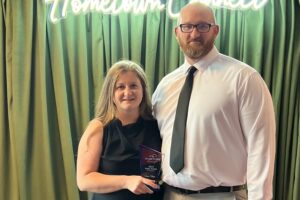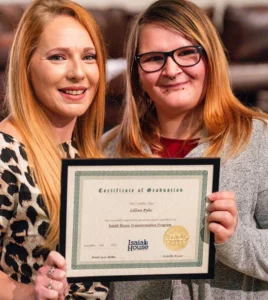Dual diagnosis, also known as co-occurring disorders, is a term used to describe the co-occurrence of substance use disorders and mental illness. This occurs when an individual has a substance use disorder and a mental illness at the same time. Dual diagnosis is a serious issue, as it can be difficult to diagnose and treat both conditions properly. In this blog post, we will discuss what dual diagnosis is and some of the common combinations of mental illnesses and addictions.
What is dual diagnosis?
As the name suggests, dual diagnosis is when a person is diagnosed with two disorders at the same time. It occurs when a person has a combination of substance use disorder and mental illness.
Dual diagnosis is becoming more and more common in the United States as rates of both of these conditions rise. According to a survey conducted by the Substance Abuse and Mental Health Services Administration (SAMHSA), more than 21 million people have a substance use disorder today.
On top of that, the National Institute of Mental Health states that nearly one in five U.S. adults lives with a mental illness. These illnesses vary in degrees of severity, but they are still common among much of the population.
Since both mental illness and substance use disorder are on the rise, it’s no wonder that there is some overlap where people experience both. However, these disorders often feed one another. Substance abuse can create conditions where a mental illness occurs and vice versa.
We can see how this plays out in some of the common combinations of dual diagnosis.
Examples of dual diagnosis
Dual diagnosis comes in many forms. This is because there are multiple different types of both mental illnesses and substance use disorders. Below are some common combinations of co-occurring disorders that we see in patients.
Alcoholism and depression
Alcoholism and depression are conditions that often occur simultaneously. One is developed before the other, but it isn’t always clear which came first. Sometimes, people who are suffering from depression use alcohol as a coping mechanism for their mental illness. Other times, a person’s excessive alcohol intake could lead to eventual feelings of depression.
In either case, alcoholism and depression can form a vicious cycle that can be difficult to escape. A person with these co-occurring disorders may experience the following symptoms:
- Excessive drowsiness
- Withdrawal from social situations
- Changes in appetite
- Irritability
- Detachment from surroundings
Prescription drug addiction and anxiety
Anxiety disorder is when feelings of intense fear and distress keep a person from performing everyday activities. Over 40 million adults in the U.S suffer from anxiety. Doctors often prescribe drugs like Ativan, Xanax, Klonopin, or Valium to treat anxiety disorders. These prescription medications can be very beneficial and help patients live normal lives.
However, these medications can also be highly addictive. When a patient feels like they can no longer manage their anxiety symptoms, the potential for abusing these substances increases.
Meth addiction and psychosis
Methamphetamine is a potent stimulant that is often used as a recreational drug. It can be incredibly destructive to the people who use it. The use of meth has the potential to change the entire way that a person’s brain functions. Naturally, the use of meth increases the likelihood that a person could develop a mental illness.
People who abuse meth often develop psychosis. Psychosis is a severe mental illness that can cause delusions, hallucinations, distorted beliefs, anger, suicidal thoughts, and other negative effects.
How dual diagnosis is treated
Patients who have both a mental illness and substance use disorder require careful treatment. Ideally, the patient would not only receive treatment for one of the conditions. Rather, both disorders would be treated simultaneously to increase the effectiveness of both treatments.
Dual diagnosis treatment may include behavioral therapy, medication-assisted treatment, and addiction counseling. A drug rehab facility like Isaiah House provides inpatient programs where patients can receive all of these different treatment types at a single safe facility.
Isaiah House specializes in dual diagnosis treatment
At Isaiah House, we provide a comprehensive, dual diagnosis program that focuses on a proven pathway to achieve a lifetime of recovery. We are a faith-based, non-profit, addiction treatment center that provides substance use disorder treatment for men and women. Our programs have a total of 201 residential beds and 100 beds for transitional living. We are nationally accredited by CARF and licensed by the state of Kentucky.
Take the next step to recovery
If you or someone you know is simultaneously suffering from substance use disorder and a mental illness, reach out to us today. We have helped thousands of men and women break free from the grip of addiction so we know that recovery is possible. We want to help you take the first step toward recovery and walk with you through your entire recovery journey.




